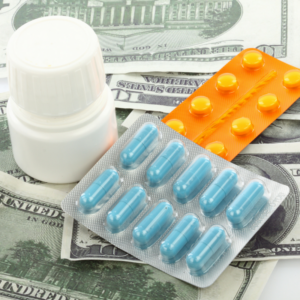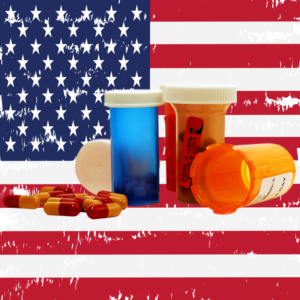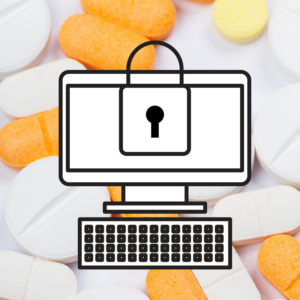by Lucia Mueller, President, PharmacyChecker.com | Jun 8, 2018 | Drug Safety
 Costs of products that improve women’s sex lives by treating a dry vagina, a taboo yet common condition, are on the rise here in the U.S. It’s bad enough to face the unfair stigma of needing medication that has anything to do with your vagina, but Big Pharma has decided to make that experience even more difficult. American women deserve to know that those much-needed products are sold at international online pharmacies for a fraction of the price tag at their local pharmacy.
Costs of products that improve women’s sex lives by treating a dry vagina, a taboo yet common condition, are on the rise here in the U.S. It’s bad enough to face the unfair stigma of needing medication that has anything to do with your vagina, but Big Pharma has decided to make that experience even more difficult. American women deserve to know that those much-needed products are sold at international online pharmacies for a fraction of the price tag at their local pharmacy.
The New York Times’ Katie Thomas recently published an article, Prices Keep Rising for Drugs Treating Painful Sex in Women, that highlighted this quiet conversation in the corner of the drug prices crisis. Your EpiPens and asthma inhalers are perhaps easier to gripe loudly about than meds related to personal matters. “It’s just infuriating that the price has gone up and up and up for no good reason,” said Cynthia Pearson, the executive director of the National Women’s Health Network, who expressed frustration at the lack of attention due to the stigma.
Women have seen prices on drugs, such as Estrace cream and Estring, more than double in the last five years. The article goes on to report that one woman “has resorted to ordering her drug from overseas at a cost of about $80 for a three-month supply,” which is great news for that savvy lady, but unfortunately leaves the reader hanging on how to safely order their own medication from abroad. After all, shopping for medications online can be quite treacherous: the internet is a landmine of scammers and sellers of counterfeit medication. Peer-reviewed and independent research demonstrates that when consumers use PharmacyChecker-verified pharmacies to buy medications purchased online, they receive lawfully-manufactured, high-quality medication. Not to mention those meds are typically sold at a much lower price than available at local U.S. pharmacies.
Vagifem sold in the U.S., mentioned in the article, is actually manufactured in Denmark. At U.S. pharmacies, just 8 tablets of Vagifem 10 mcg can cost women around $200, but it’s sold at international online pharmacies for as low as $20, a 90% savings. Premarin Vaginal Cream is a whopping 98% cheaper if women order through an online pharmacy in the United Kingdom that’s been verified by PharmacyChecker. Premarin sold in the U.S. is manufactured in Canada.
Vagina may be a stigmatized word, but saving money on meds? Now, that’s something to shout about.
Tagged with: dry vagina, estrace, estradiol
by Gabriel Levitt, President, PharmacyChecker.com and Prescription Justice | Jun 1, 2018 | Drug Importation
 The relentless deluge of Big Pharma bunk in the media continues. Dr. Kristina Acri, an associate professor of economics at Colorado College, recently published an op-ed in a local Colorado newspaper – The Pueblo Chieftain – called “Drug importation bill a poison pill.” Dr. Acri is against a state bill supported by Congressman Jared Polis (D-CO), who is also running for Governor, that would allow the wholesale importation of lower-cost medication from Canada. This bill is similar to one recently passed in Vermont, which came from drug importation model legislation created by the National Academy for State Health Policy.
The relentless deluge of Big Pharma bunk in the media continues. Dr. Kristina Acri, an associate professor of economics at Colorado College, recently published an op-ed in a local Colorado newspaper – The Pueblo Chieftain – called “Drug importation bill a poison pill.” Dr. Acri is against a state bill supported by Congressman Jared Polis (D-CO), who is also running for Governor, that would allow the wholesale importation of lower-cost medication from Canada. This bill is similar to one recently passed in Vermont, which came from drug importation model legislation created by the National Academy for State Health Policy.
The Pueblo Chieftain did not include that Dr. Acri has worked for the Pharmaceutical Researchers and Manufacturers of America. She is also known as a staunch supporter of the drug industry’s intellectual property rights agenda.
Congressman Polis was given ample opportunity to respectfully refute Dr. Acri’s stance in his own op-ed called “A safe way to lower drug costs.” I liked his op-ed. Feel free to read both of their positions, but one thing he wrote about Dr. Acri’s piece was wrong: “I very much appreciate Dr. Acri offering a constructive, fact-based critique that enriches our community’s discussion of this important issue.” Her piece was decidedly not fact-based, and it needs to be called out. Let’s break it down.
First, she writes: “A study by the Organization of Economic Co-Operation and Development showed that counterfeit drugs accounted for 2.5 percent – or $461 billion— of the world drug market in 2013.” I looked at that report, and it states that in 2013 international trade in counterfeit and pirated goods (not just drugs) “represented up to 2.5% of world trade, or as much as $461 billion.” That section is referring to total world trade – not solely pharmaceuticals. That total includes all counterfeit products ranging from “high-end consumer luxury goods such as watches, perfumes or leather goods, to business-to-business products such as toys, pharmaceuticals, cosmetics and foodstuffs.” Over the years, the industry has plucked numbers out of thin are on the topic of counterfeit drugs, getting “facts” to stick in the media, but this one really took the cake.
See the study for yourself: https://read.oecd-ilibrary.org/governance/trade-in-counterfeit-and-pirated-goods_9789264252653-en#page12. (more…)
Tagged with: colorado, Congressman Jared Polis, Dr. Kristina Acri, nashp, state importation bill
by Gabriel Levitt, President, PharmacyChecker.com and Prescription Justice | May 23, 2018 | Internet Censorship

From left to right: Aria Iliad Ahmad, me, Dr. Jillian Clare Kohler, Tim Smith, Ron Andruff, Dr. Shivam Patel, Tracy Cooley, and Robert Guerra.
Last year I organized a panel at a conference called RightsCon to bring together Internet freedom and medicines rights activists to talk about buying medication online. And last week, I participated on a panel at RightsCon in Toronto that continued and strengthened those initial efforts. It was an honor to be on that panel, especially to hold discussions with academic experts in pharmaceutical safety and access with important roles working with the World Health Organization (WHO).
For those of you who are new to this blog, the work at RightsCon is directly relevant to PharmacyChecker’s mission to inform patients about safe and lower-cost medication options available on the Internet. Essentially, large pharmaceutical companies are lobbying governments and Internet companies to take actions that will prevent you from getting less expensive medications. This is also an issue about free speech and Internet freedom that should increasingly attract even more digital rights activists. Big Pharma is pressuring governments to pressure Internet gatekeepers to take down content. This is the Stop Online Piracy Act by a thousand cuts. We are trying to push back against that.
RightsCon is an annual conference focusing on the intersection of human rights and digital rights (issues related to the Internet). Access to medication has become an important issue at the United Nations, including by the Human Rights Council, which passed a resolution in 2016 declaring access to essential medicines a human right. Also, the UN convened a panel in 2016 dedicated to this issue, called the UN High Level Panel on Access to Medicines. Thus, the title of this year’s panel was Making Safe Online Access to Affordable Medication Real: Address the UN Human Rights resolution for access to essential medicines. (more…)
Tagged with: and Robert Guerra, Aria Iliad Ahmad, brussels principles, Dr. Jillian Clare Kohler, Rightscon, Ron Andruff, Shivam Patel, Tim Smith, Tracy Cooley
by Gabriel Levitt, President, PharmacyChecker.com and Prescription Justice | May 18, 2018 | Drug Importation
 In its wisdom and activist spirit, Vermont has a new law on the books allowing for the wholesale importation of FDA-approved drugs from authorized wholesalers in Canada. Canadian wholesale pharmacies sell many brand-name drugs at much lower costs than their U.S. counterparts. This could help patients pay lower prices at local pharmacies and the state to save money on its pharmacy bills.
In its wisdom and activist spirit, Vermont has a new law on the books allowing for the wholesale importation of FDA-approved drugs from authorized wholesalers in Canada. Canadian wholesale pharmacies sell many brand-name drugs at much lower costs than their U.S. counterparts. This could help patients pay lower prices at local pharmacies and the state to save money on its pharmacy bills.
Some people (oh, I don’t know, ones sponsored by Big Pharma) are saying that the drug importation program is illegal. Let me tell you why that’s ridiculous – and I’m using a kind word. The new law does not allow pharmacies in Vermont to import medication from Canadian wholesale pharmacies; at least not yet. Instead, Vermont will ask permission from the U.S. Department of Health and Human Services to implement an importation program. It will try and prove to the department that its program will be safe and compliant with federal law. If the Secretary of Health and Human Services certifies the program, which is permissible under current law, only then will Vermont bear the fruits of its labors and begin importing from Canada.
I wrote more extensively about similar legislation introduced in Utah, which passed the House but failed to make it through the Utah Senate. Here’s that analysis: Rep. Norman Thurston’s Utah Drug Importation Bill. It explains, mostly, what this bill is and is not.
What’s amazing and motivating is that Vermont passed this bill 29-0 in the Senate, and 141-2 in the House. Vermont is not putting up with pharma’s bull on importation anymore.
Word up, Vermont!
Tagged with: Vermont
by Lucia Mueller, President, PharmacyChecker.com | May 11, 2018 | Drug Importation
 Today, President Trump will be talking about drug prices and his administration’s plan to help Americans better afford prescription drugs. By permitting importation of affordable medication, the administration has a chance to really strike a populist chord and a positive one.
Today, President Trump will be talking about drug prices and his administration’s plan to help Americans better afford prescription drugs. By permitting importation of affordable medication, the administration has a chance to really strike a populist chord and a positive one.
It’s been said that the president is going to talk about trying to force other countries, such as Canada, to raise drug prices. Instead, why not expressly allow Americans to access those lower prices through importation? It was one of the solutions offered by Trump during his campaign.
The millions of Americans, across all parties, who already import medication to fill prescriptions will wildly applaud the administration for doing so.
Can Trump use executive authority on drug prices? Yes. Under current law, the Secretary of Health and Human Services, Alex Azar, can permit individuals to import medication for personal use right now. The Secretary can also make it lawful for companies to import FDA-approved drugs at wholesale pharmacies in Canada.
America is united against high drug prices. It seems we’re only waiting for POTUS to catch up.
Tagged with: Alex Azar, executive authority, trump
by Gabriel Levitt, President, PharmacyChecker.com and Prescription Justice | May 3, 2018 | Big Pharma
 Central to Big Pharma’s lobbying efforts is relying on drug company-funded “nonprofit” groups to sanitize their goals under the veneer of charity. Investigative reporting in Tarbell, a media organization founded by healthcare activist Wendell Potter, shows that drug companies, namely Eli Lilly, successfully lobbied the Obama administration to make Internet companies embrace policies that curtail online access to affordable medication.
Central to Big Pharma’s lobbying efforts is relying on drug company-funded “nonprofit” groups to sanitize their goals under the veneer of charity. Investigative reporting in Tarbell, a media organization founded by healthcare activist Wendell Potter, shows that drug companies, namely Eli Lilly, successfully lobbied the Obama administration to make Internet companies embrace policies that curtail online access to affordable medication.
These pharma-funded nonprofits engage fellow industry-tied patient groups, the media and people, promoting the idea that rogue online pharmacies and safe international online pharmacies are the same thing. Their message: don’t buy lower-cost medications online from other countries because it’s too dangerous.
That message is an outright lie.
(more…)
Tagged with: Alliance for Safe Online Pharmacies, ASOP, Big Pharma, Eli Lilly, LegitScript, Obama Administration, tarbell
 Costs of products that improve women’s sex lives by treating a dry vagina, a taboo yet common condition, are on the rise here in the U.S. It’s bad enough to face the unfair stigma of needing medication that has anything to do with your vagina, but Big Pharma has decided to make that experience even more difficult. American women deserve to know that those much-needed products are sold at international online pharmacies for a fraction of the price tag at their local pharmacy.
Costs of products that improve women’s sex lives by treating a dry vagina, a taboo yet common condition, are on the rise here in the U.S. It’s bad enough to face the unfair stigma of needing medication that has anything to do with your vagina, but Big Pharma has decided to make that experience even more difficult. American women deserve to know that those much-needed products are sold at international online pharmacies for a fraction of the price tag at their local pharmacy.

 The relentless deluge of Big Pharma bunk in the media continues. Dr. Kristina Acri, an associate professor of economics at Colorado College, recently published an op-ed in a local Colorado newspaper – The Pueblo Chieftain – called “
The relentless deluge of Big Pharma bunk in the media continues. Dr. Kristina Acri, an associate professor of economics at Colorado College, recently published an op-ed in a local Colorado newspaper – The Pueblo Chieftain – called “
 In its wisdom and activist spirit, Vermont has a
In its wisdom and activist spirit, Vermont has a 
 Central to Big Pharma’s lobbying efforts is relying on drug company-funded “nonprofit” groups to sanitize their goals under the veneer of charity. Investigative reporting in
Central to Big Pharma’s lobbying efforts is relying on drug company-funded “nonprofit” groups to sanitize their goals under the veneer of charity. Investigative reporting in 